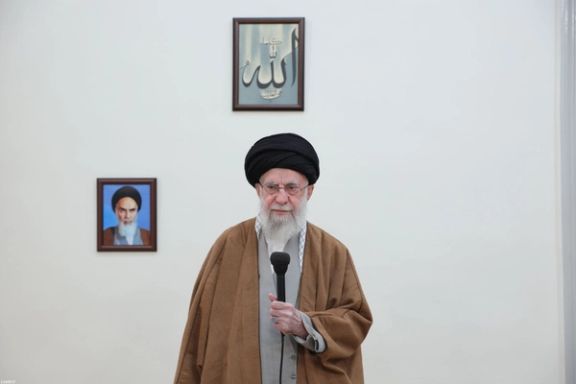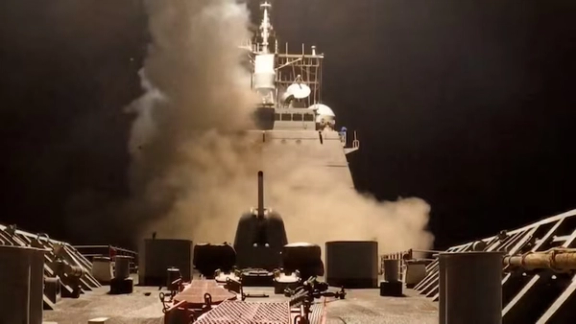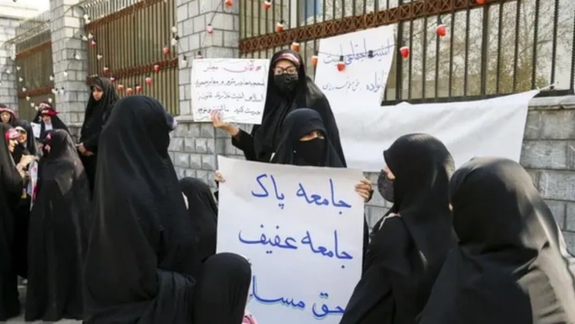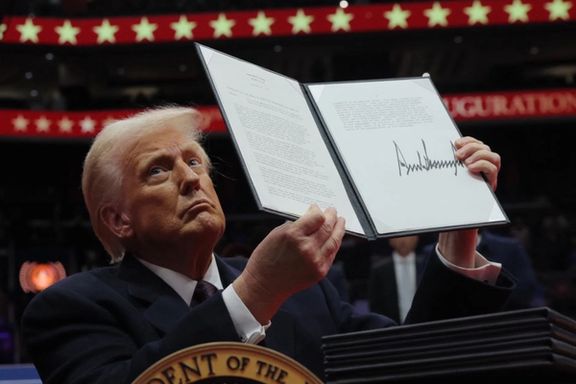The State Department had suspended funding for numerous initiatives, including Iranian human rights groups, internet freedom programs, and civil society organizations, as part of a broader review of foreign assistance under the administration’s America First policy.
The freeze, announced on January 20, was initially set for 90 days but the review process appears to have concluded in time, with all but a few of projects focusing on Iran colored green in a list of State Department “active grants” obtained by Iran International.
The State Department did not comment on the specifics of Iran-related grants when contacted by Iran International but confirmed that funding for some programs is proceeding.
"While the US Government's review of all foreign assistance is ongoing, some approved programs are continuing to advance US national interests. This includes some programs in support of the Iranian people," a State Department spokesperson said.
Multiple grantees have also confirmed to Iran International that their funding has been reinstated and that their operations will restart.
Ahmad Ahmadian, an advocate of internet freedom in Iran who leads the efforts of the California-based NGO, Holistic Resilience, in research and development of censorship circumvention technologies.
Welcoming the decision to reinstate funds to organizations like his, Ahmadian suggested that pressuring the rulers of Iran and supporting its people at the same time is not only possible but necessary if the United States wants to effect real change in the country—and beyond.
“The Trump administration’s policy is focused on increasing efficiency and avoiding the start of a new war,,” he told Iran International. “Iranian civil society remains the most promising option to achieve this goal and to change the behavior of the Iranian government.”
Ahmadian agreed that some reform toward efficiency and effectiveness might be required with the State Department grants.
“I believe new projects should demonstrate a clear return on investment, operate with greater transparency, highlight the shared values between the Iranian and American people, and focus more on tangible results,” he added.
Prior to the pause in foreign aid, Washington funded several Virtual Private Network (VPN) services that helped Iranians bypass government censorship. U.S. funding also supported projects aimed at promoting media freedom, strengthening civil society, and documenting human rights in Iran. All of these initiatives were affected by the executive order.
The halt in funding—announced on Trump’s first day in office—was widely criticized by Iranian activists who argued that the decision benefited Tehran’s theocratic rulers above all. The resumption, those affected believe, would turn the table and more.
“The Islamic Republic tried to use the temporary suspension of funds as a propaganda tool, claiming that these projects lacked usability and impact. But the reality is that many have had tangible effects on Iranian society,” one State Department grantee told Iran International, asking to remain unnamed.
“The Trump administration showed that it values Iran-related projects. I anticipate even more funding flowing into this sector. These projects are aligned with the America First policy,” the grantee added.
The State Department has not publicly commented on the status of the review or the reasons for reinstating aid. Both the pause and resumption of funding happened at a time of heightened tensions between Washington and Tehran.
President Trump has ramped up economic and diplomatic pressure on Tehran, issuing an ultimatum to Supreme Leader Ali Khamenei to agree to a deal that curtails Iran’s nuclear program or face severe consequences.
Khamenei has rejected direct talks while pressure persists and rises, asserting that Iran would not bow to American demands.
With both sides hardening their positions, concerns are growing over further escalation, particularly as the US bolsters its military presence in the Middle East and the Indian Ocean.
The most recent US intelligence assessment pointed to Tehran’s diminished influence in the region and the potential of growing discontent at home giving rise to mass protests like those seen in recent years.
The decision to reinstate grants may have had such assessments at heart.






